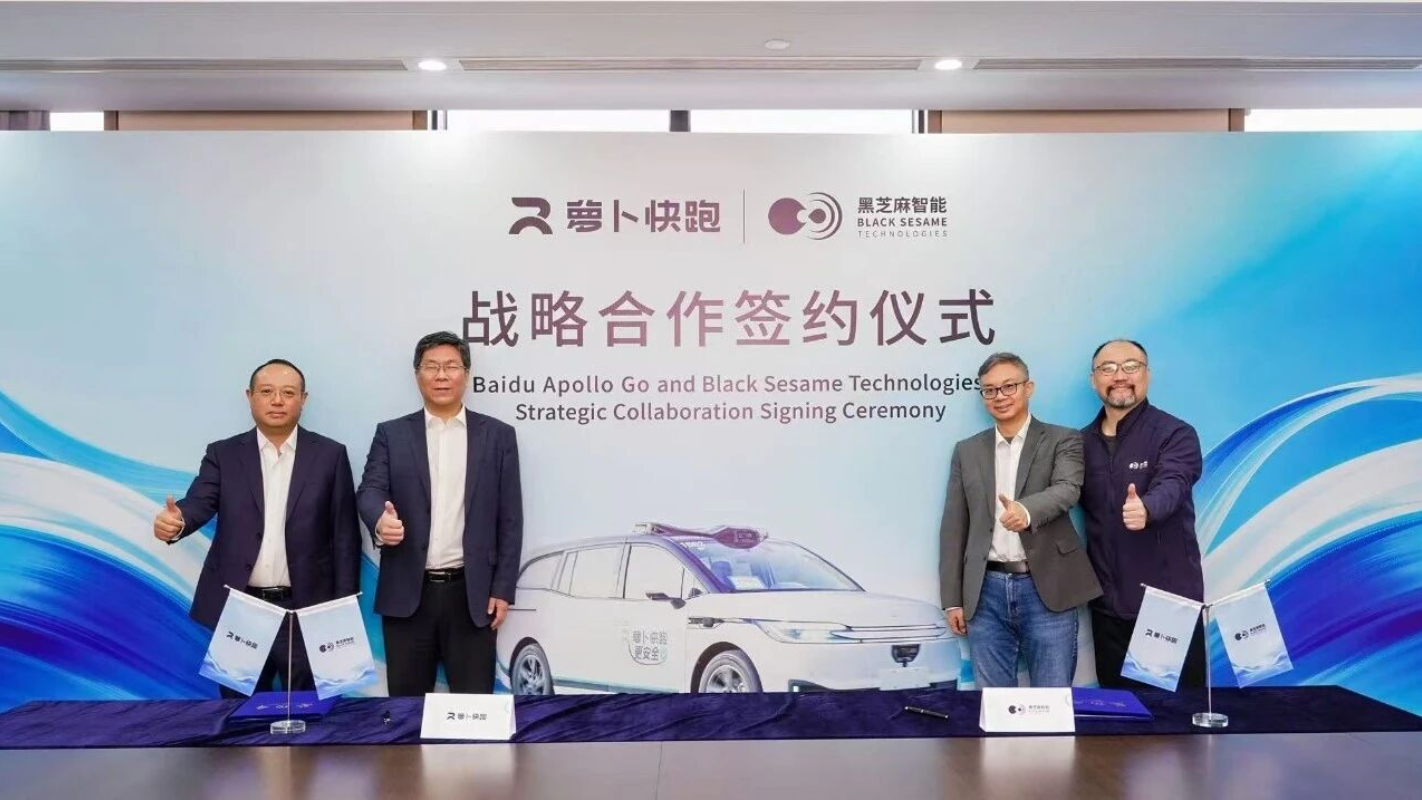The First Edition of Series of Interview with MNC Auto Parts Suppliers
GAS: Thank you for your accepting this interview for Gasgoo.com. As we all know, Delphi China had very good performance last year. Can you briefly describe it for us?
Jay Jiang: Delphi China experienced rapid growth in 2006. We made great progress in the following areas: Firstly, we expanded our business presence in China. Secondly, our research and development center (R&D) started up and grew fast.Thirdly, the aftermarket developed and our sales network has been primarily established. Generally speaking, we had good growth in 2006.
GAS: Of all your products, including chassis, powertrain and electronic devices, which business grew the fastest in 2006?
Jay jiang: We would say 2006 was an overall productive year with comprehensive growth in every division.The increase in engine management systems was strong and the market share of wire sets was still in first place in the domestic market. Besides, the business of electronic devices grew fast as well. As you might have noticed, Delphi established a joint venture with Beijing Motorcycle Company, which is affiliated with Beijing Automobile Works, to produce safety products in the second half of 2006.
GAS: What's the proportion of Delphi China in Delphi's international business?
Jay Jiang: The revenue of Delphi International is around 27 billion U.S dollars. Currently, Delphi China accounts for a small portion.
GAS: However, this portion is showing an increasing tendency.
Jay Jiang: Exactly. The speed of growth is surprising. We came to China in the 1990s, and sales were only tens of millions in U.S dollars. However, the 30% average growth rate was far more than the average growth rate of Delphi International. And we believe that this growth trend will continue in the following years.
GAS: As you just mentioned, the average growth rate of Delphi China is over 30% .It is also faster than that of the assembled vehicle industry. As an international supplier, what is your point of view about the growth trend of the Chinese auto industry in the next 3 to 5 years? Will the fast growing trend of 2006 continue or will there be a periodic adjustment as in 2004?
Jay Jiang: We began to do some research on the development trends of assembled vehicles from the fourth quarter of 2006. Besides this, we attended some related meetings and lectures as well and collected some useful information. Generally speaking, we are very optimistic on the prospects for the Chinese auto market. In our opinion, the China auto industry has a very solid base. The purchasing power and intention to buy of consumers are increasing simultaneously. In addition, the macro-economy situation is very bright.There aren't any negative factors in sight.
GAS: There are a lot of competitors such as the Japanese, Korean, European and American, as well as Chinese local auto manufacturers. Who are your main customers among these automakers?
Jay Jiang: The guiding principle of Delphi was to serve multiple brands and multiple customers when Delphi established its business in China. We won't limit our business to one customer nor to American carmakers only. Because of the market fluctuation, it is harmful and dangerous to put all your eggs in one basket. We now supply North American vehicle manufacturers as well as Japanese, Korean and Chinese local automakers. But presently, the portion of American and European customers is larger than the others. Currently, Delphi China is focusing on two kinds of customers: one is the Japanese and Korean automakers, which are popular to Chinese consumers. There is huge potential in their joint ventures in China. The other one is the Chinese local auto manufacturers. Some of them are experiencing increasing growth. We must ensure that we can establish business cooperation with those who have the strength and potential to become the next Toyota in China.
GAS: The development of local auto parts companies will be driven by the rise of Chinese auto manufacturers.: Do you think they will become the main competitors to the international auto parts giants like Delphi? Or will the challenge still come from other international auto parts companies?
Jay Jiang: The Chinese auto parts market is an international market, which means that the competitors we are encountering now in China would be the competitors in European, American and other markets in the world. Almost all of the powerful rivals are here. Actually, the auto parts industry is full of cooperation and labor divisions. Many Chinese auto parts makers have the potential to become suppliers to Delphi. Finding them and having them join the Delphi supply system is one of our most important tasks Chinese auto parts makers have a cost advantage, while the disadvantage would be the lack of advanced technology, capital and management. In order to massively support the assembled vehicle manufacturers and the top suppliers, the auto parts companies should be equipped with excellent logistics,strong financial support and an advanced human resource management system, which are the shortcomings of Chinese local suppliers presently. However, I think many of the Chinese local suppliers would have the ability to join the supply chain with their own efforts, and the guidance and training from multi-national companies like Delphi.There may be some powerful local auto parts companies and top suppliers in China in the future But it is not necessary to set such a goal for the company, since the criteria of a powerful company should be its own ability, quality of its products, and its financial situation, and not its position in the supply chain.
GAS: So are the main rivals of Delphi still multi-national companies?
Jay Jiang: Right. China is a snapshot of the international market, with even more fierce competition.
GAS: Are the main suppliers of Delphi from Chinese local companies or foreign ones?
Jay Jiang : Both. But we have to develop more local suppliers according to our goals in China. Our purchasing office was established in Shanghai in the beginning of 2000, with the staff being responsible for developing potential suppliers.The staff would find the potential suppliers and then provide training to them to make them join our supply system.The suppliers would supply to Delphi China at first until they proved their ability to join our international supply chain to serve Delphi International. So the Chinese companies would supply not only Delphi China, but also Delphi America and Delphi Europe.
GAS: Are there many companies like this now?
Jay Jiang: Yes.
GAS: Is the percentage low?
Jay Jiang: We are very cautious. You know the auto industry is an industry of scale economy. The suppliers may be fined heavily if bad quality products cause interruptions in the vehicle production line, which is calculated by minutes. If the recall of products is necessary due to problems in quality, the loss would be huge. So we set goals cautiously, without taking too much risk.
GAS: What's the amount of procurement of Delphi in China?
Jay Jiang: I don't have the latest updated data right now. The amount for 2004 was between 400 and 500 million U.S dollars. We experienced rapid growth in recent years. Currently, the procurement by Delphi International is between 13 and 14 billion U.S dollars.
GAS: The portion of Delphi China is small but with expectation of huge growth.
Jay Jiang: Yes, exactly. One of our goals is to reach one billion U.S dollars in 2007 steadily.
GAS: The director of purchasing for GM announced that they would postpone their plan of 10 billion U.S dollars procurement in China before 2010 for various reasons. Delphi began its procurement business in 2000. What do you think is the biggest problem of procurement in China?
Jay Jiang: I think the main problem is the quality of products and the ability to steadily supply quality products for the long term. Our requirements are very high. For example, PPM should be in the single digits. Actually, the PPM in most of the international companies, including Delphi, is 1 or 2 pieces, sometimes even 0.The price should be competitive as well.The most important thing is the continuous and steady performance in high-quality products, which requires an advanced management system, for instance, excellent logistics and supply chain management.
GAS: Is logistics a big challenge?
Jay Jiang: Not only logistics, but also engineering and communication ability. can you communicate with foreign customers directly and effectively? If they called you asking a simple question, could you understand and explain clearly? Chinese local suppliers would have to improve themselves to face these kinds of problems.Presently, the suppliers of Delphi in China are those who supply for us worldwide and have established joint ventures with Chinese local companies. They account for a big portion. The local suppliers still need time to reach such level. However, they have the potential due to the cost advantage. The problem is how to improve the internal management system to guarantee good quality and effective communication capability.
GAS: The advantage of procurement in China is low cost. If Delphi International buys in China, how would the company deal with the appreciation of RMB?
Jay Jiang: Delphi does not have the intention of making China an export base for supplying the whole world because it's not practical. The auto parts industry has its unique characteristics. For instance, some parts could be produced in low-cost countries and then be supplied to all over the world, but many products could not be supplied in time due to parts volume, transportation, logistics and engineering changes. The main strategy of Delphi in China is to help the Chinese auto industry grow. Some companies under Delphi China have export business, which only serves as a way of improving their operations to international level.The export business shows your competitiveness but it is not our goal.The importance is to take advantage of the emerging Chinese market. The appreciation of RMB, of course, would affect our business. But we know it is a slow process during which we will adjust our strategy accordingly.
GAS: Delphi has been striving for improving the quality of local suppliers and developing the local market. The R&D was established in April 2006. The CEO of Delphi presented the opening ceremony showing Delphi's emphasis on it.What's the main challenge during the preparation process?
Jay Jiang: The establishment of our R&D was the most important event for Delphi in the last two years There is a trend of establishing research centers in China.As the Chinese auto industry develops, if the auto parts companies do not have the ability of localized research, engineering development, and product design, they will not be competent in such a fast growing market.More than one hundred new automotive models were launched in 2006, which means one new model or modified model every 3 days. In such circumstances, you cannot meet the demands of consumers at all if you lack research and engineering capability and rely on North America, Europe and Japan.There are various challenges of which the main problem is talent. The Chinese auto industry is very young especially in accumulating R&D experience, so there are few talented professionals. The main job of Delphi is how to provide training to talented personnel, which are mainly recruited from undergraduate and graduate students. In addition, one of the focuses of Delphi China R&D is the auto electronic research.Since Chinese electronics is a leading field from which we recruited a certain amount of talents who are familiar with electronics but know little about the automobile industry, training is necessary to fill this gap. So the primary challenge is to find the right talents, to train them and provide an agreeable working environment so that they can carry out the research independently as soon as possible.
GAS: This challenge will be faced not only by Delphi but also by all multi-national companies. What is the focus of Delphi? Do you select the focus according to the structure of talents in China?
Jay Jiang: Delphi invests a huge amount of capital in research, about two billion U.S dollars annually. We have 34 research centers globally and each focuses on a particular field. As one of the centers, the China research center focuses on auto electronics emissions, engine management systems, and safety,which is in accordance with the requirements of the Chinese auto industry. We predict that the focus of the Chinese auto industry will be fuel efficiency, environment, and safety, which are all based on the research of auto electronics. We have put a lot of effort into auto electronics and have made a great deal of achievement.
GAS: The auto electronics research is the focus of China R&D, Do you carry out fundamental research on it?
Jay Jiang: There are several levels of R&D. The basic level of research and engineering is engineering application. In fact, some suppliers to Delphi China have the ability to do such work. We also have engineering application in our China research center.The next higher level is design and development of new products, which will be the focus of the China research center. The highest level is the advanced research, for instance, fuel cell and hybrid engine. The goal of the China center is to take some advanced research into the future.
GAS: It is the goal of the China research center. Is it the beginning of Delphi global R&D?
Jay Jiang: Our advantages of future development in China are technology, research and systems. We should view it periodically. For example, 5 or 10 years ago there was neither consumer demand nor market demand to establish a China research center, considering the condition of the auto industry at that time. But now, if you do not have an advanced R&D center, it would hinder your development in China.
GAS: Last question, about aftermarket. Delphi first set foot in the Chinese auto aftermarket in 2006. What are your thoughts about it?
Jay Jiang: What's the advantage of Delphi in the aftermarket? I think it is to provide the same high quality to OEM as we provide for complete vehicl. Our production is mainly for complete vehicle manufactures. I think this is appealing to our customers. We formed a team for aftermarket services over the past two years and, in 2006, we put a lot of effort to develop some strong dealers. Moreover, diesel products will go to market because we believe that vehicle manufacturers will develop and launch diesel engine vehicles in the future. To meet the market demand, we began to establish repair and maintenance centers for diesel engines across China, starting in 2005. Diesel engine business involves many high technologies so the facilities and pre- investment were necessary. So far a sales network has been established.
GAS: There are a lot of Chinese local suppliers in the aftermarket whose prices are very competitive. What is your strategy for competing as an international company?
Jay Jiang: The principle of Delphi in aftermarket is to cooperate with stronger dealers so that we can develop high-tech customers more effectively. Another problem is how to deal with the issue of counterfeiting. It is definitely not tolerated at all and we adopt an unwavering attitude by conveying a distinctive message that we will do a thorough investigation against it.
GAS: Thank you for your time!
All rights reserved. Please notify the source for any use.









